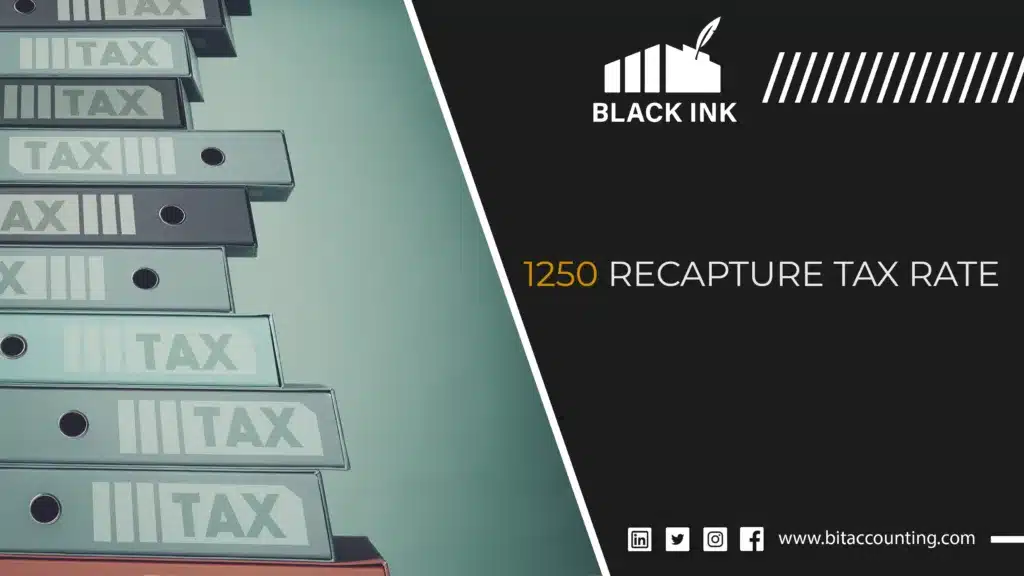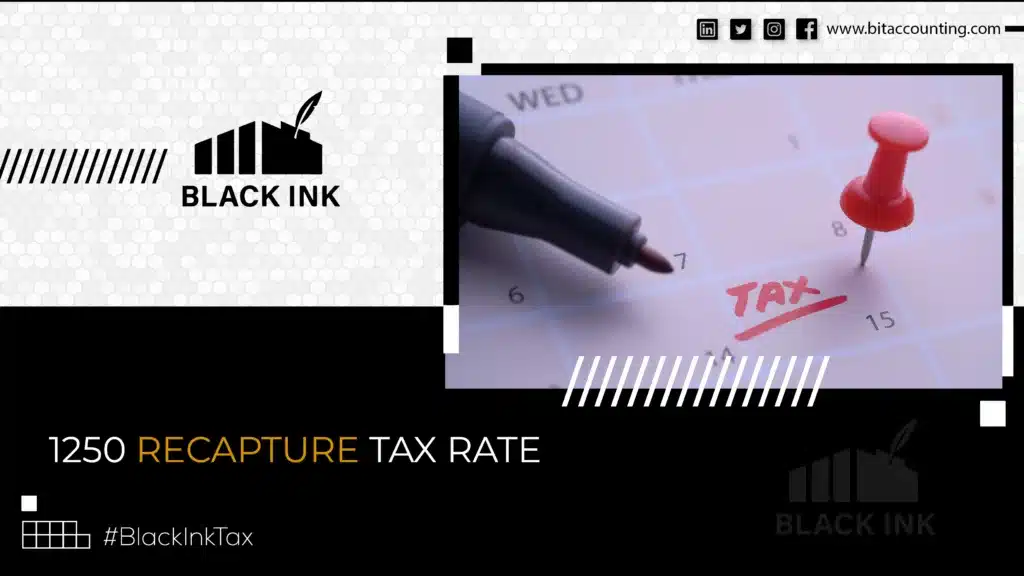
Table of Contents
1250 Recapture Tax Rate: 5 Key Moves to Protect Your Real Estate Profits
When it comes to selling real estate, many investors are caught off guard by something hidden beneath the surface: taxes. You might think you’ve made a big profit, but when tax time comes, a chunk of that money can disappear. One of the most overlooked tax issues is something called the 1250 Recapture Tax Rate. If you’re not careful, it can reduce your profits in a big way.
In this guide, we’ll explain what this tax is, why it matters, and—most importantly—five smart ways to reduce your tax bill and keep more of your earnings.
What Is Section 1250 Recapture?
When you own rental property, you usually deduct part of its cost each year through depreciation. This helps lower your yearly income tax bill. But when you sell the property, the IRS wants some of that money back. That’s where Section 1250 Recapture comes in.
This rule says you have to pay taxes on the depreciation you claimed earlier. It only applies to buildings—not the land—and affects both commercial and residential rental properties.
How It’s Calculated
There are different ways to figure out depreciation, but most rental properties use something called straight-line depreciation. This spreads out the deduction evenly over many years. Some properties may have used accelerated depreciation, which gives bigger deductions early on, but also leads to a larger recapture tax when sold.
Tax Rate Differences
Here’s the tricky part: The 1250 Recapture Tax Rate can be up to 25%—that’s higher than many people expect. After that, any remaining profit is taxed as a capital gain at rates of 0%, 15%, or 20%, depending on your income.
Example Scenario
Let’s say you bought a rental property for $500,000 and claimed $100,000 in depreciation over several years. You then sell it for $700,000. That means:
- $100,000 is taxed at the 1250 Recapture Tax Rate (up to 25%)
- The rest ($100,000 profit) is taxed as a capital gain
That’s a lot of tax if you’re not ready for it.
What Is a 1031 Exchange?
One of the best ways to avoid paying taxes right away is through a 1031 exchange. This IRS rule lets you sell a property and use the money to buy another similar one without paying taxes immediately.
How It Helps Avoid 1250 Recapture
A 1031 exchange delays both capital gains and depreciation recapture taxes. But you have to follow the rules closely. You must:
- Find a new property within 45 days
- Buy it within 180 days
- Use a qualified middleman to hold the money
Potential Pitfalls
If you receive cash or a different kind of property during the exchange (called “boot”), it becomes taxable. Also, missing the deadlines can ruin the whole deal.
Case Study Example
Imagine an investor sells a small rental home and uses a 1031 exchange to buy a bigger apartment building. By doing this, they avoid paying $50,000 in taxes right away—including the 1250 Recapture Tax Rate. That’s a big win.
Convert to a Primary Residence (If Eligible)
Another option is turning your rental into your main home before selling it. If you live in it for 2 out of the last 5 years, you may qualify for a primary residence exclusion under Section 121.
This means:
- Up to $250,000 of profit is tax-free if you’re single
- Up to $500,000 is tax-free if you’re married

Reducing Recapture Through Partial Exclusion
Even if you lived in the house for a while, you still have to pay recapture tax on the time it was rented. But the total tax can be less if you meet the primary residence rule.
Example: You rent out a house for 5 years, then live in it for 2 years. When you sell, some gains are tax-free, but the depreciation during the rental period is still taxed.
Limitations & Risks
- You must follow the IRS living rules
- The recapture tax doesn’t go away—it just gets smaller
Installment Sales to Spread Out Tax Liability
If you don’t need all the money from a sale right away, consider an installment sale. In this deal, the buyer pays you in parts over several years. You only pay taxes on the money you get each year.
How It Reduces Recapture Impact
The recapture tax is split across the years, which can keep you in a lower tax bracket. That means you might pay less overall.
When It Makes Sense
- The buyer has good credit but can’t get full financing
- You want to earn interest and delay taxes
Example Calculation
Let’s say you make a $200,000 gain, with $40,000 of it being depreciation. If you spread the payments over 5 years, you pay $8,000 a year in recapture tax instead of all at once. That’s easier on your wallet.
Maximize Deductions & Cost Segregation
Before you even sell, you can plan ahead using smart tax tools like cost segregation studies and passive activity losses.
Cost Segregation Studies
This study breaks your property into parts, like fixtures or landscaping, that can be depreciated faster. It gives you bigger deductions early, but more recapture later. Use it wisely.
Strategic Use of Passive Activity Losses
If you have unused passive losses from past years, you can use them to cancel out the recapture tax when you sell. It’s a clever way to lower your tax bill.
Other Deductions to Consider
- Fixes that count as repairs can be deducted right away
- Improvements are depreciated over time
- Energy-efficient upgrades may qualify for 179D deductions
These small things can add up.
Bonus: When to Consult a Tax Professional
Real estate taxes are tricky. A tax pro can help if:
- You’re doing a complex deal (like selling multiple properties)
- You own mixed-use buildings (both rental and business)
- You live in a state with different rules
- Tax laws change (like after the Tax Cuts and Jobs Act)
Don’t guess—ask for help when it matters.
Conclusion
The 1250 Recapture Tax Rate can take a big bite out of your real estate profits if you’re not ready for it. But by using smart strategies like 1031 exchanges, converting to a primary home, setting up installment sales, and boosting your deductions, you can keep more money in your pocket.
Tax planning isn’t just for the wealthy—it’s for any smart investor who wants to get the most out of every deal.
For expert help with real estate taxes, talk to the team at BIT Accounting. They’ll help you keep more of your profits and avoid surprises at tax time.
FAQs
Q: What is the 1250 Recapture Tax Rate?
A: It’s a tax of up to 25% on depreciation you’ve claimed on real estate when you sell it.
Q: Does 1250 recapture apply to land?
A: No, it only applies to buildings, not land.
Q: Can I avoid the recapture tax completely?
A: You can delay it using tools like a 1031 exchange, but it’s hard to avoid it entirely unless you have other deductions.
Q: Should I do a cost segregation study?
A: It depends. It helps lower taxes early but increases the recapture tax later. It’s best used with a long-term plan.
GET FREE QUOTE FOR ALL OF OUR SERVICES
Black Ink will send you a free analysis of your current state and what would be the cost of managing either a separate accounting and bookkeeping services or a complete solution across New York, USA. Do get in touch and we will be happy to consult you with our bookkeeping services in NY, New York, USA.
